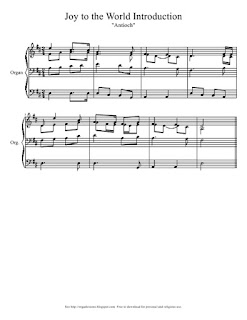Manual-Only Hymns for Organists

This set of transcriptions is intended to help new organists play with confidence and accuracy. In the preface we read that, "This book makes it possible for a person with modest keyboard skills to quickly become proficient in hymn accompaniment, as well as opening the door to continuing improvement in organ playing." The introduction further states, "This collection of simplified hymns is intended only to introduce organ playing to the pianist.... The appendix contains a list of ways to continue training with the help of others or on your own. We strongly encourage LDS organists to magnify their calling by further developing their organ-playing skills."
This edition reduces the number of voices from four to three, with fingerings added to help introduce organ technique. Some instructional information is also included.
Transformations

Transformations contains easy additions to create simple preludes and postludes. The purpose of this edition is to provide musical material, which, when added to the three-voice hymns shared above converts hymns into simple and beautiful preludes and postludes. These introductions and codas are intended to be played without pedals.
Some registration information is included, as well as suggestions for performance.
If you haven't yet seen or acquired these publications, I highly recommend following the above links. They are free online and can be printed at will. Even accomplished organists may wish to use these arrangements occasionally as a simple prelude and/or postlude, or in addition to other arrangements.
What are your thoughts?





